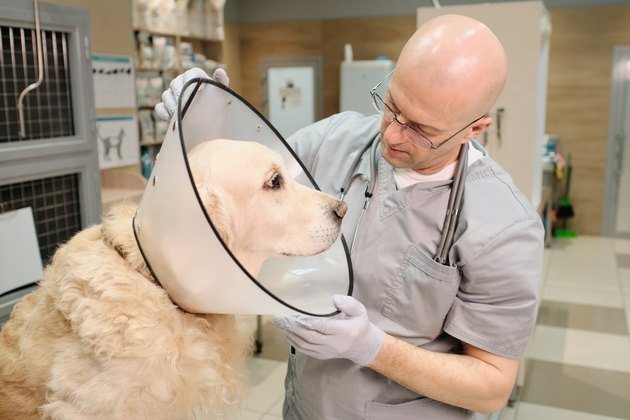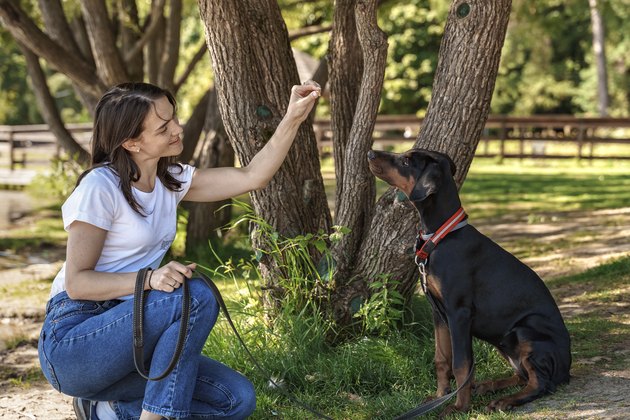Everything You Should Do During Your First Week With Your New Dog

Taking care of their health
One of the very first things recommended for newly adopted dogs is to set up an appointment with a veterinarian, who can offer a basic wellness check, and administer any medication needed, if so. Often, adopted dogs come with a set of vaccinations and a microchip, but this isn't always the case, so it's best to ask for any medical records from the adoption organization, then take that info with you to a doctor. A new puppy will need a series of vaccinations which are administered on a schedule over the course of several months, so be sure to obtain records of which shots were given and when.
Food is another obvious need for your new dog, and often, newly adopted dogs may take a little while to get their stomachs settled if their diets are changed too fast upon going home. To make the transition as smooth as possible, find out what food your dog was eating at the shelter and continue with that diet to start. If you wish to change the food your dog eats, subtract small amounts of the old food and add in bits of new food until your dog is only eating the new diet.

Making your dog comfortable
Attending to the physical health of a dog is just one aspect of pet care. Making sure your dog is cared for mentally and emotionally is just as important, especially in those first days of your new relationship. Starting on day one, make sure your dog has a comfortable, safe space to decompress in, like a new dog bed or a crate equipped with blankets and some chew toys to help keep occupied. A shy or timid dog might benefit from their personal space being housed in a quiet, low-foot traffic area of the home, at least at first.
A dog who just came home from a new place, like a shelter or boarding facility, may also be in need of a bath or grooming. Because baths can be stressful for some dogs, be sure to ask about your dog's temperament and preferences from your adopter, and see if they have groomer recommendations in your area who may be able to handle sensitive dogs, if need be.
Setting up for success
Part of maintaining a loving and respectful relationship with your new friend includes setting boundaries, both around the home and personally. For puppies, you may need to start with some of the basics, like house training and simple commands, as well as basic home etiquette. Baby gates are also a good idea for the first few days (or as long as needed), as they can keep dogs of any age away from potentially tempting situations that inadvertently set them up to fail, like full garbage cans or houseplants.

IN CONCLUSION
Having basics prepared for when your new pet first comes home can make the first week comfortable and assured for everyone. Things to have ready include bedding, food, and a veterinary practice for check up. Puppy and dog proofing your home will keep your canine friend and your belongings safe, and setting personal boundaries through a structured routine and training will set your dog up for success well into their later years.






